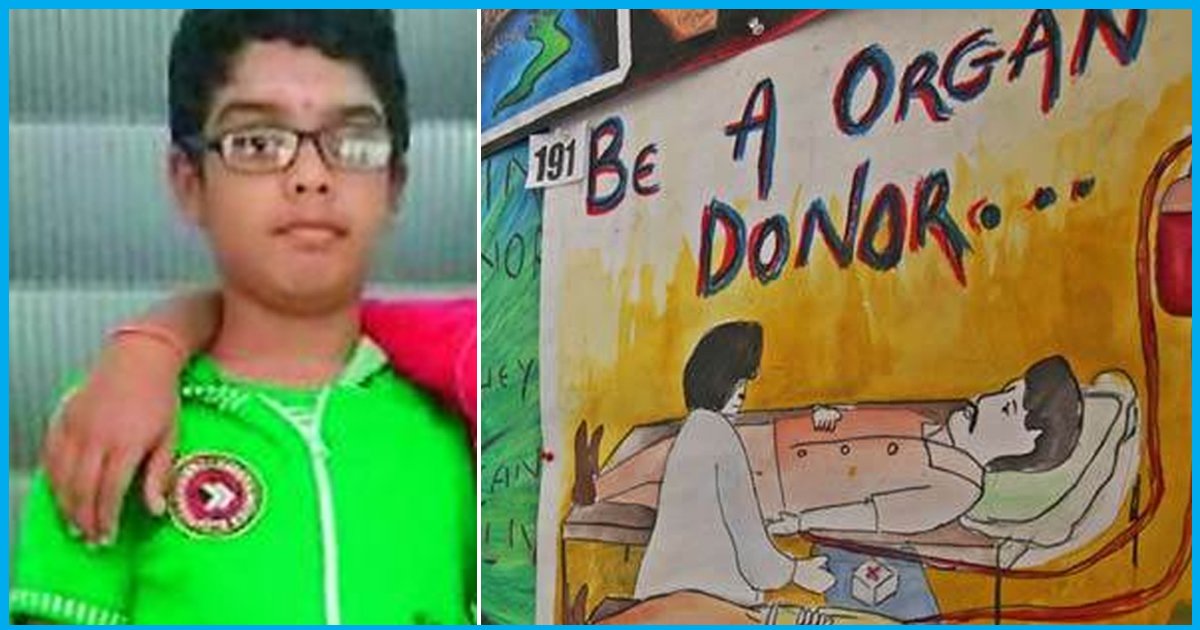
12-Year-Old Dies In An Accident, Family Donates His Eyes
23 Jun 2017 12:43 PM GMT
In a bizarre accident, an eighth standard student, Chavala Sri Harsha from Kommuvari Veedhi, Vijayawada, AP died on Tuesday when a branch of a tree fell on him and pierced his throat. “A eucalyptus tree got uprooted and the branches fell on Harsha, while he was proceeding on the main road. The locals rushed him to a nearby hospital, but in vain,” an onlooker said. Despite the unbearable grief, the family have decided to donate the eyes of Harsha. Police Commissioner D. Gautam Sawang paid tributes to the boy and has praised the humanity of the bereaved family.
How is eye donation useful?
According to National Programme for Control of Blindness, there are 1.8 crore blind people in India, out of which 20 lakh are corneally blind and are in dire need of transplantation. Against an annual requirement of 75,000 to 1,00,000 corneal requirement in India, only 37,103 corneas are donated in the present. Over 90% of more 41,300 cornea transplants are performed each year to provide vision to corneally blind patients successfully. According to Sankara Nethralaya, there are almost 270,000 blind children in India, treating corneal blindness through the method of corneal transplantation will surely bring about a massive change.
A wise man utilises the precious gift of eyesight while alive as well as after death. Donation of eyes can give vision to two blind people and help them enjoy the colourful and lively world and bring them out of their dark, dreary life. There is no substitute for human tissue, and the process of removing the eye is called enucleation.
Donating eyes can also be seen as a way to give back to the society and a human, philanthropic act. Eye donation of the deceased can be authorised by next of kith and kin.This act can primarily help the corneally blind, as the front and bright part of the ophthalmic tissue is used, a process also called as corneal drafting.
An eye bank facilitates removal of eyes and then distributes it to the needy. Eye banks are covered under Transplantation of Human Organs Act. The government issues certificates of registration to eye banks and has a provision to revoke them if any misuse is found to be taking place.
Who can donate eyes ?
- Eyes should be ideally donated after 6 to 8 hours of death.
- Anyone from any age group can become eye donors. People suffering from Asthma, Diabetes, Hypertension or even Cataract can become successful donors.
- One needs to contact the nearest eye bank and experts will collect the eyes which are again a twenty-minute procedure.
- One can also take precautions like applying antibiotic eye drops and keeping the eyes of the deceased shut to facilitate a smooth process of removal.
How can you PLEDGE your eyes?
He/She must take a PLEDGE for eye donation by signing up and filling a form collected from the nearest eye bank. This will help him get a card which would mention his intention of donating his/her eyes after death. One must also let immediate kith and kin know about his decision of donating eyes after death. If it remains in the knowledge of friends and family of the deceased about the donor’s decision, wastage can be avoided. In a case of any freak mishap, friends and relatives of deceased who bore the testimony of the deceased’s wish to donate eyes can begin the procedure at the soonest. Earliest removal of cornea thereby can help one blind patient. Immediate family members or friends can also give eyes if the deceased has not pledged his eyes before hand. Donor anonymity is strictly preserved by law.
For further information on this topic, one can directly get in touch with a few renowned eye hospitals in India like Sankara Nethralaya, Aravind Eye Hospital and L V Prasad Eye Hospital. If you want to look up the nearest eye bank in your state Eye Bank Association of India will be an ideal option. National Programme for Control of Blindness will give a comprehensive glance about the missions and programmes undertaken by the government, detailed achievement of success rate of these schemes and state-wise reports.
 All section
All section













